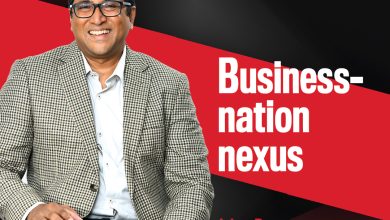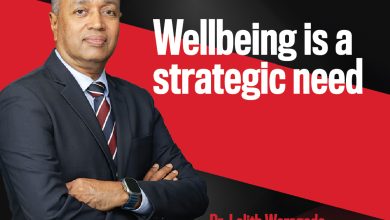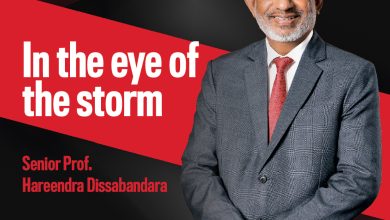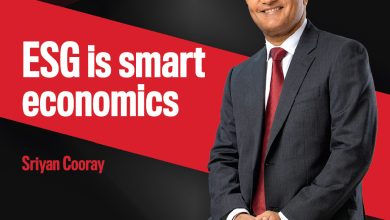BUSINESS EXPANSION
Vision driven expansion
Damith Pallewatte
“In essence, business expansion is no longer judged by size alone but by how and why it is pursued”
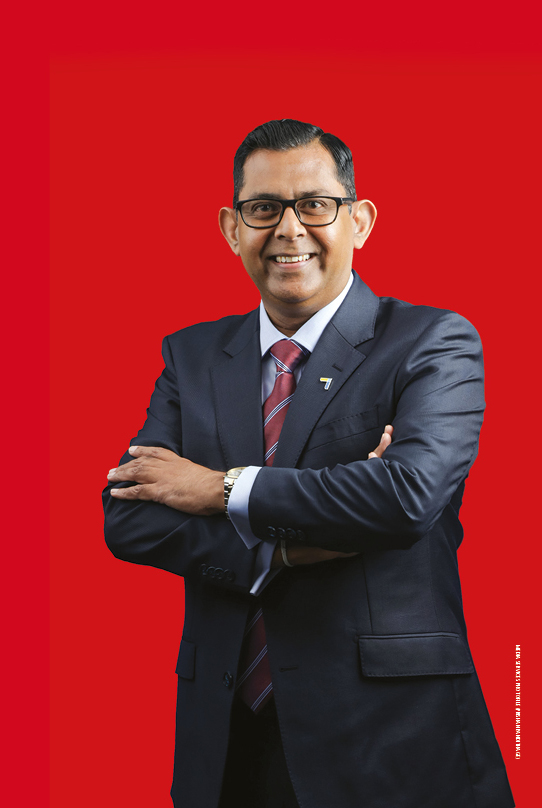
In a highly competitive business environment, the manner in which an organisation expands is just as important as how far it goes. According to Damith Pallewatte, business expansion must be driven by purpose, ethics and long-term vision to command lasting respect.
“Organisations that expand with a clear strategy that’s aligned to long-term purpose driven value creation are seen as mature and dependable. When expansion is sustainable, it continues to earn respect,” he states.
Pallewatte believes that businesses that adhere to ethical standards during expansion are more likely to be admired and trusted.
He says enterprises that lead with innovation and enter new markets with cutting-edge products or services set benchmarks for the entire sector or industry. These are the players that expand into the future by elevating their status and earning the recognition of being thought leaders.
“In essence, business expansion is no longer judged by size alone but by how and why it is pursued. The most respected organisations expand with purpose, responsibility and a long-term vision,” he declares.
MEASURED GROWTH When asked whether measured and strategic growth instils greater confidence and respect among stakeholders, Pallewatte replies: “It signals strong leadership and vision, and demonstrates that the leadership has a clear road map that’s grounded in realistic and long-term value creation.”
This approach conveys a message that the organisation isn’t chasing short-term gains and is instead, pursuing endurance. Measured and strategic growth also reflects an understanding of risk management to avoid overexposure or a drain on resources.
“I believe investors and the business community are likely to view this as a sign that the organisation is here to lead and not simply survive. Therefore, the wider business community is more inclined to collaborate with such organisations,” he opines.
CRITICAL CHALLENGES As businesses grow, one of the most critical challenges is to ensure that expansion remains aligned with their core values and brand integrity.
Pallewatte believes that this alignment must be intentional and systematic: “I think it’s essential that before entering new markets, launching products or acquiring businesses, the leadership should revisit and reaffirm the organisation’s core values.”
And he emphasises that these values must be embedded in the growth process to ensure that decisions are guided by purpose and not merely profitability. Organisations should integrate their values into strategic decision making, and use them as filters for evaluating risks, opportunities and cultural fits.
“Mature organisations with a global footprint have established high-level committees to oversee value alignment throughout the growth process,” he notes – and they keep both internal and external stakeholders informed about how and why expansion decisions are being made.
THOUGHTFUL EXPANSION Pallewatte firmly believes that being recognised for thoughtful expansion elevates an organisation’s standing among its peers and competitors.
“When an organisation expands thoughtfully and plans growth with risk, ethics and long-term value creation, it shows the strength and clarity of its leadership,” he explains.
Pallewatte asserts: “Recognition for thoughtful expansion is not simply a badge of honour but also a strategic asset. It elevates an organisation’s position from being only ‘another player’ to becoming a trusted leader and benchmark in its field. It’s not only important but essential for sustaining long-term success.”
RESPECT AND CREDIBILITY He stresses that upholding the respect and credibility earned by an organisation is of utmost importance – and exceptionally difficult.
“It necessitates perfect alignment of multiple stakeholders including the board and management. Consistent credibility builds stakeholder loyalty especially during times of uncertainty or transformation. It sets the tone for culture and conduct by sending a clear message that ‘we don’t compromise on who we are.’”
Pallewatte concludes: “I strongly believe respect and credibility are not simply reputational goals. They are the foundation for endurance, influence and trust. Earning them is hard. Keeping them is harder. But losing them can cost an organisation everything.”

